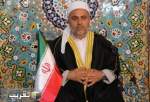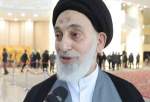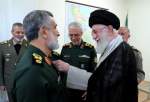In an interview with the Saudi-run Al Arabiya news agency, whose text was published on Sunday, Blinken claimed that Iran has rejected the opportunity it had last summer to return to the 2015 nuclear deal, known as the Joint Comprehensive Plan of Action (JCPOA).
“Unfortunately, they rejected what was on the table and had been agreed to by everybody. Their either wouldn’t move forward with it,” Blinken added, saying that the US’ focus has now shifted to “the many things that have happened since.”
Elsewhere in his interview, Blinken also said military maneuvers with Israel and other countries in the Persian Gulf meant to deter Iran’s activities in the region.
Reacting to his remarks, Iran’s Foreign Ministry spokesman, Nasser Kan'ani, said, “The US administration must be aware of the legal and international responsibilities resulting from threatening remarks against the Islamic Republic of Iran and think twice about the political consequences of such provocative statements.”
He added that Iran has frequently emphasized the peaceful nature of its nuclear activities, as corroborated by numerous reports of the International Atomic Energy Agency (IAEA), which prove that building nuclear weapons is not part of Iran’s national security doctrine.
The spokesperson emphasized that Iran has never stopped its scientific, technical and technological progress in the nuclear field and would continue to abide by the nuclear Non-Proliferation Treaty, commonly known as the NPT, to an extent required for the country's development and based on its inalienable rights as a member of the treaty.
"The US government is well aware that the Islamic Republic of Iran does not tolerate any aggression or encroachment on its territory and interests and will respond decisively ... to the aggressors," Kan'ani pointed out, warning that Iran's response will make enemies regret their act.
Blinken's remarks came on the same day that Iranian Foreign Minister Hossein Amir-Abdollahian said that his Qatari counterpart had conveyed messages from the parties to the JCPOA, whose fate has been in limbo ever since the United States unilaterally withdrew from the agreement in 2018.
“Today, we received messages from the JCPOA parties via the Qatari foreign minister,” Amir-Abdollahian said in a joint press conference with Qatari Foreign Minister Mohammed bin Abdulrahman bin Jassim Al Thani in Tehran on Sunday, without providing more details.
Back in May 2018, former US president Donald Trump unilaterally pulled Washington out of the JCPOA, which was reached between Tehran and six world powers three years earlier. Trump also imposed harsh economic sanctions against the country under the so-called “maximum pressure” policy.
The talks to salvage the agreement kicked off in the Austrian capital of Vienna in April 2021, months after Joe Biden succeeded Trump, with the intention of examining Washington’s seriousness in rejoining the deal and removing anti-Iran sanctions.
The talks, however, stalled as Washington continued to insist on its hard-nosed position of not removing all sanctions that were slapped on the Islamic Republic by the previous US administration. Iran maintains that it is necessary for the other side to offer some guarantees that it will remain committed to any agreement that is reached.












